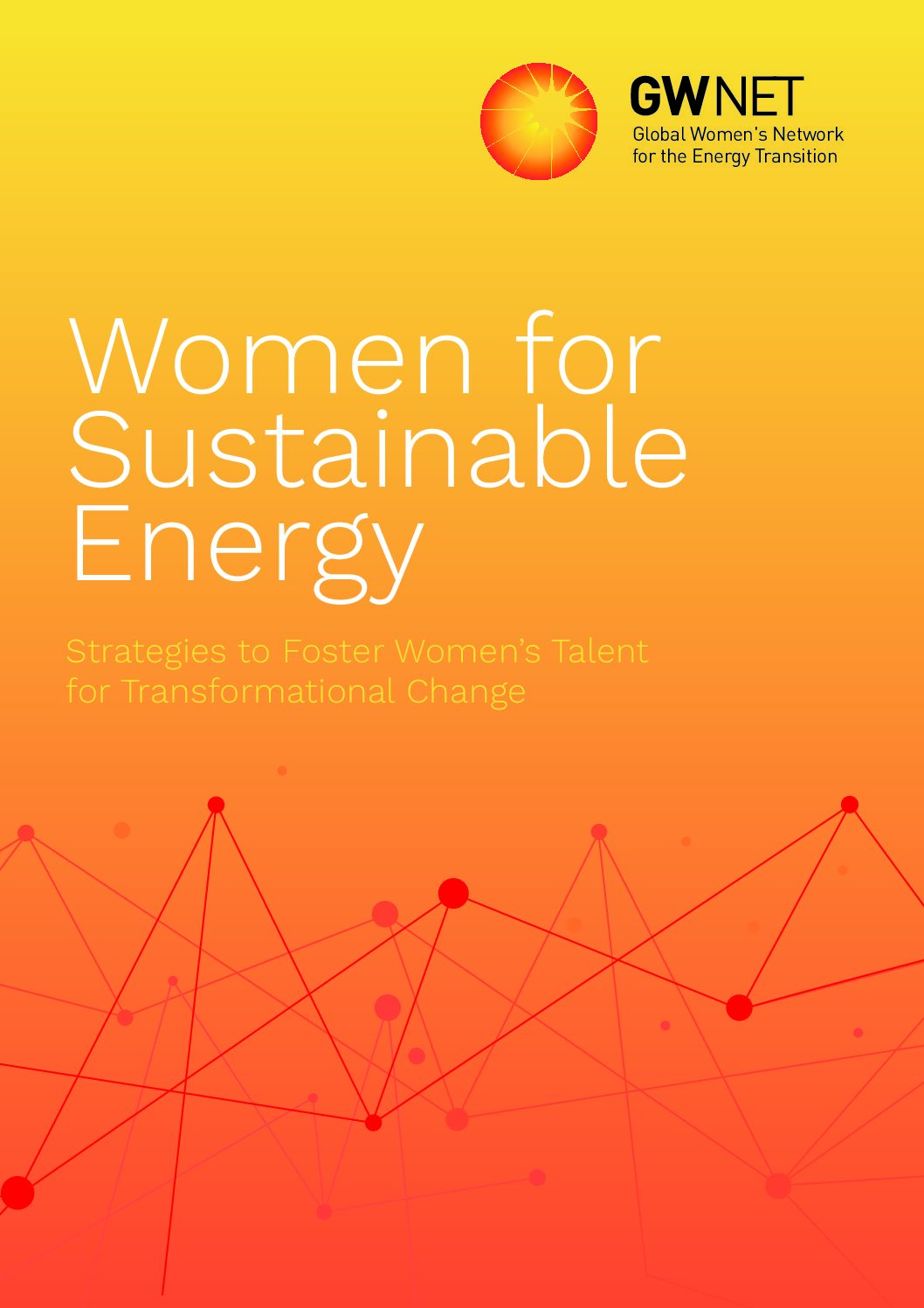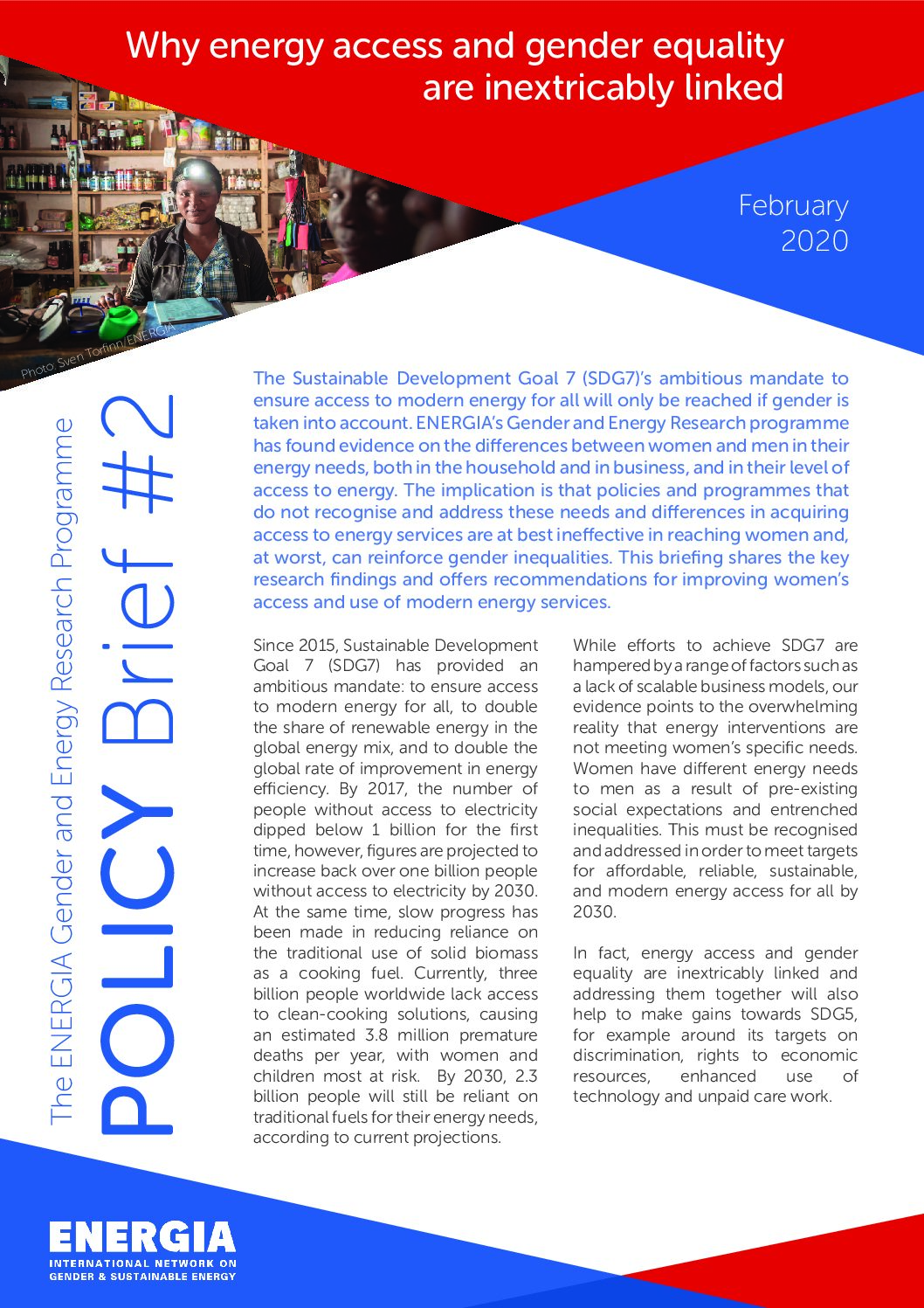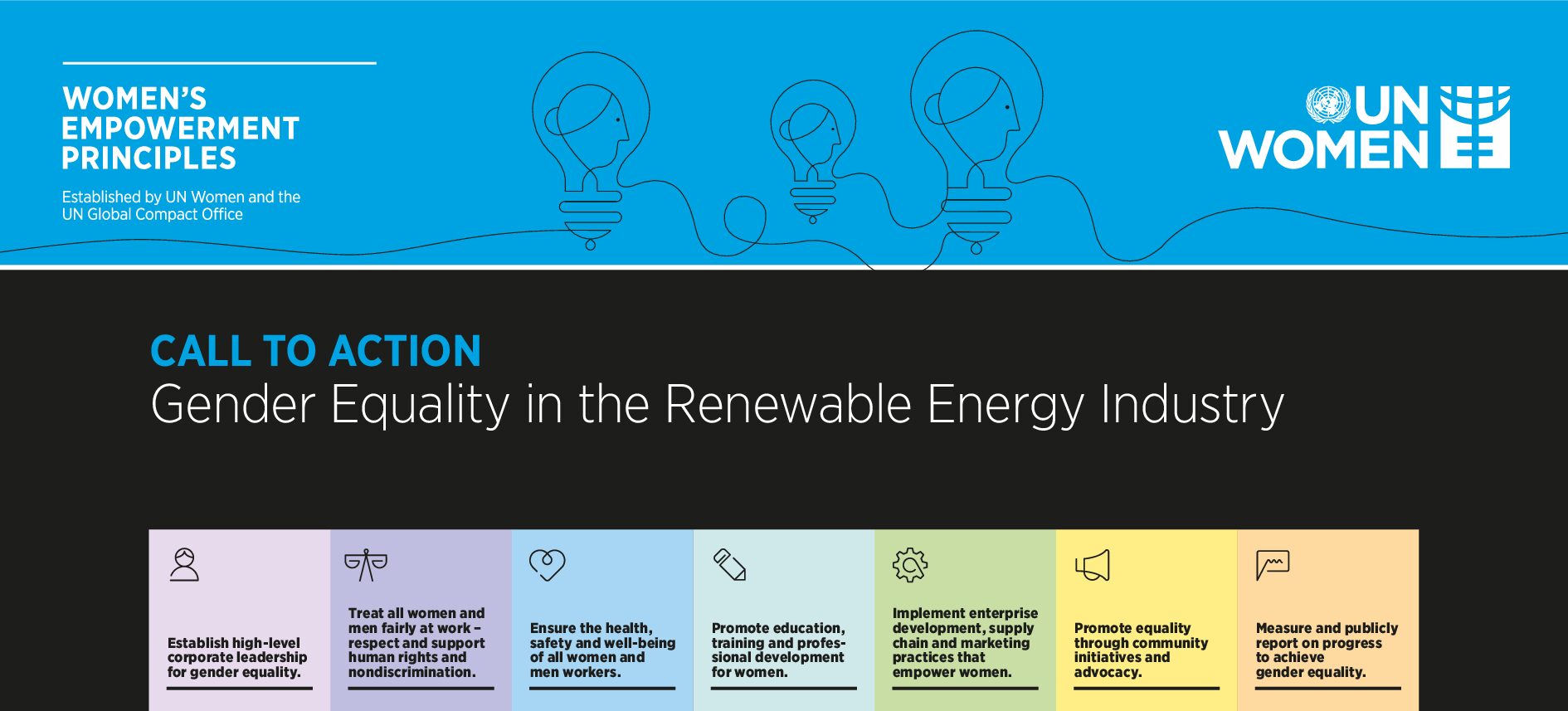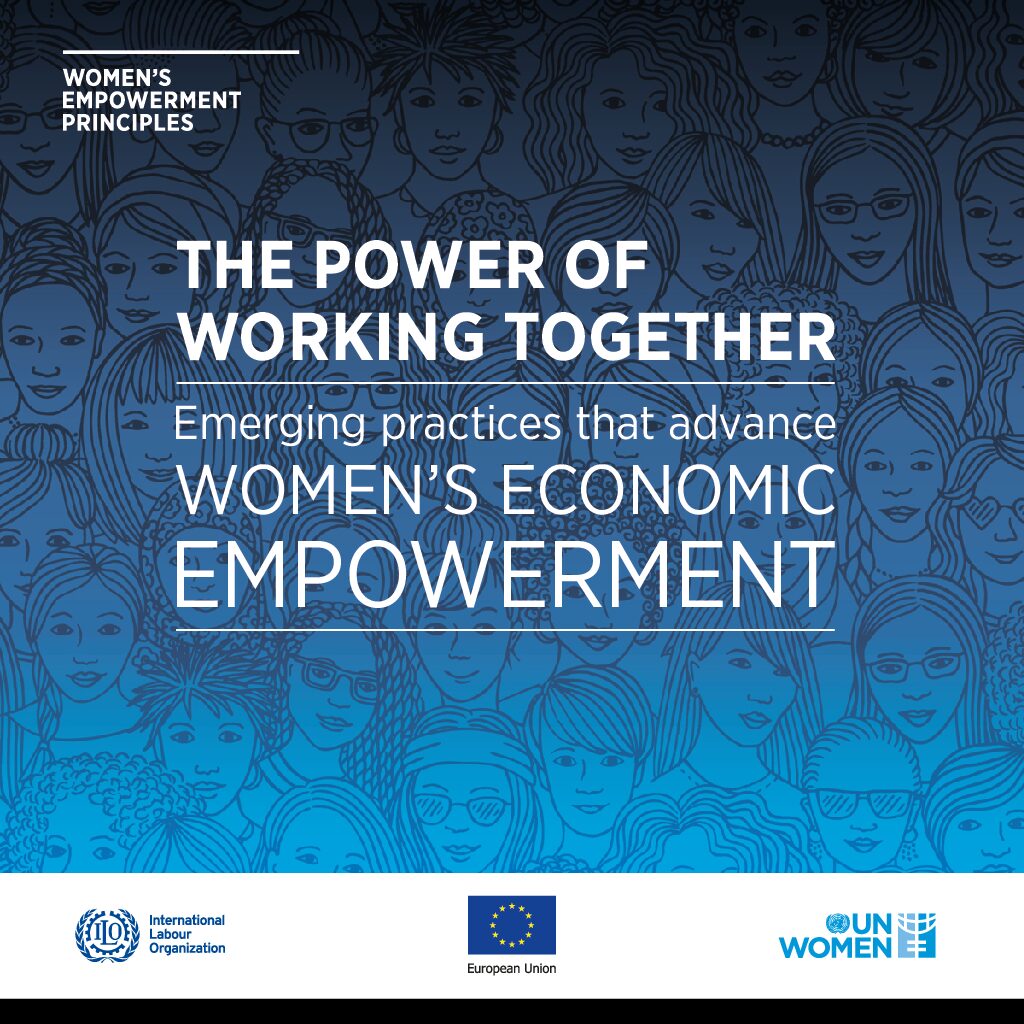This report highlights the importance of sector coupling as a key source of flexibility that cities can explore to stabilise power grid operations when integrating high shares of variable renewable energy sources. It presents a range of sector coupling opportunities available for use in cities, including self-consumption of variable RE sources, the role of thermal […]
This report provides baseline data on women’s employment in renewable energy, as well as information on barriers to gender equality and recommendations to close gender gaps.
This report analyses gender biases in renewable energy companies in Latin America.
This article investigates the benefits to women of electricity access, beyond just economic benefits.
This report provides baseline data on women’s employment in renewable energy, as well as information on barriers to gender equality and recommendations to close gender gaps.
This policy brief explains the links between energy access and gender equality, and provides policy considerations.
This report assesses the impact of the Ivorian National Rural Electrification Programme on the lives and empowerment of rural women.
This UN Women brief explains why and how gender equality should be promoted in the renewable energy industry.
This report shares good practices in advancing women’s economic empowerment in the workplace, the marketplace and the community.
Institutions all over the world are setting up microcredentials in responses to calls from governments and industry: short courses, usually offered online by accredited institutions, with an emphasis on the needs of the workplace. They are also often used for retraining and upskilling. This book explains how to start offering microcredentials as an academic institution.







